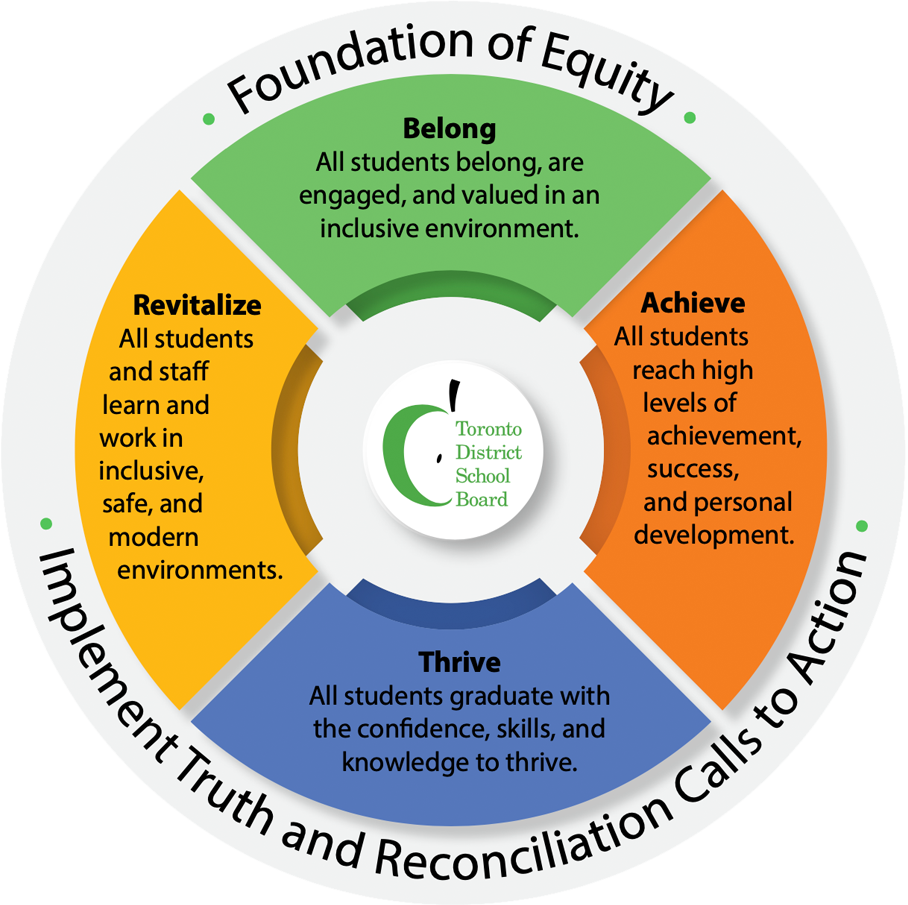The TDSB is proud to launch its Multi-Year Strategic Plan (MYSP), Inspiring Minds and Shaping Futures: Our Multi-Year Commitment to Student Success, which sets direction and identifies system goals to support the TDSB's 239,000 students and 579 schools.
With Equity as a guiding principle, and a commitment to Truth and Reconciliation: Calls to Action, the MYSP will guide and focus our work for the next four years (2024-28). The MYSP serves as a roadmap towards realizing the collective vision for the students and staff served by the TDSB and is a reflection of the rich perspectives, ideas, and goals of TDSB communities.
